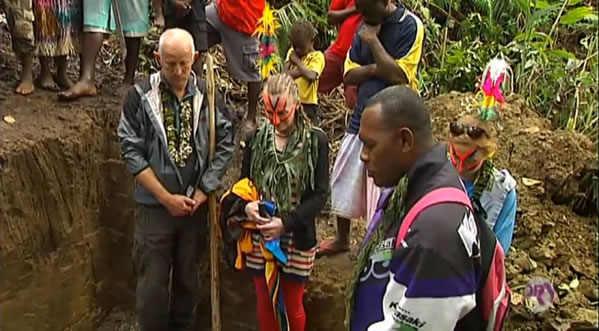Heading up to Vanuatu 4 months after Cyclone Pam was a rewarding experience but sobering reminder. My purpose was to see how both the emergency response has gone and how the far longer and more complex rebuild is progressing. The New Zealand response to this disaster has been substantial – both via the aid agencies and from our government. As well, some of the private responses – particularly those which have donated relevant expertise – have helped significantly.
The major agency I have a relationship with is UNICEF and it has played a substantial role with this emergency, particularly in those initial days, applying its strengths around logistics and responding with scale. Overall the impression I gained was that Vanuatu at this stage after the disaster, appears to have progressed far more than had been managed by the same time in Christchurch. The strong cooperation of the French, Australian and New Zealand governments with applying military assets in those first days and weeks made an enormous difference.
As well as the cooperation between the military agencies, there continues to be a major collaborative presence by a number of the major international aid agencies. To prevent duplication of effort and to ensure as many of the needs are addressed, these agencies work together.
As always with responses to natural disasters (particularly acute in developing countries) there are site-specific factors that threaten the success of an operation. Vanuatu has a population of a quarter of a million spread over 80 islands, so distribution of supplies and key personnel is a nightmare. When the military ships were there this was more orderly. Nowadays though, freight capacity is limited and the price has skyrocketed to be one of the most expensive shipping services in the world as the market responds. When I look at the containers and containers of unsolicited goods that have arrived from all over the world and are staked up in Port Vila – most of them goods no longer needed and about as useful in Vanuatu as Eskimo suits. I really do wonder about the mentality of some people in donor countries who think they’re doing good sending all their useless cast-offs when in reality they do nothing but add cost (in this case of disposal) to already-stretched resources on the ground here.
Agencies also get swamped by opportunist firms (many from donor countries) wanting to assist but charging a price that they should be ashamed of. That’s not aid of course, it is unadulterated profiteering. If it were up to me I would name those firms back in New Zealand so donors can judge them for what they are. In countries like this whose transparency and accountability is weak, there is a standard corruption present day-to-day amidst the ranks of government officials and politicians. This is only amplified during times of crisis as the jingle of aid dollars attracts more of such behaviour like wasps to rotting meat. I had a couple of meetings with expats living here who have been trying to organise their own small scale responses to address needs of nearby villages, only to be frustrated by the corruption. The front pages of the newspaper while we’ve been here have been dominated by court cases on political corruption.
Lest anyone thinks this is a Vanuatu issue only, it most definitely is not, I have seen it in almost every country I have been directly involved in aid work. It is simply a hazard of the activity. To boot, ruling politicians become acutely sensitive to charges of corruption and threaten all manner of dire sanction such as shutting down access for aid efforts. The hypocrisy of the political powers that be really comes to the fore in these times.
Opportunists pilfer the aid lines in all manner of ways, but seasoned international agencies know this. Accordingly these agencies build up supply lines that are as impervious to such scumbag behaviours as possible. But no supply lines are ever totally immune so it is a constant battle to confront the worst of the crime.
Emergency respondents face a dilemma – they have to ensure the relief gets through rapidly but at the same time it is distributed fairly so the distribution doesn’t give rise to domestic conflict. On top of that natural tension there’s the challenge in closing down as much as possible the opportunities for political, bureaucratic and private corruption in the form of extortion and bribery. Added to these problems in situ, there’s the wide range of behaviours in the donor countries which add to the complexity – from the naïve dumping of their rubbish goods into the donation bins, to grubby opportunist behaviour by commercial concerns.
The business of effective emergency relief has not got any easier over the decades and is far more complex than the ordinary citizen would know. Lots of people ask me “how much of my dollar is getting through to those in need?” but this complexity renders the question naïve. The challenge is to educate the donor public on the complexity of emergency and development aid.
Watch: Kiwis bring life-changing water to Vanuatu

